Unrest: Swiss film triumphs at Korean film festival
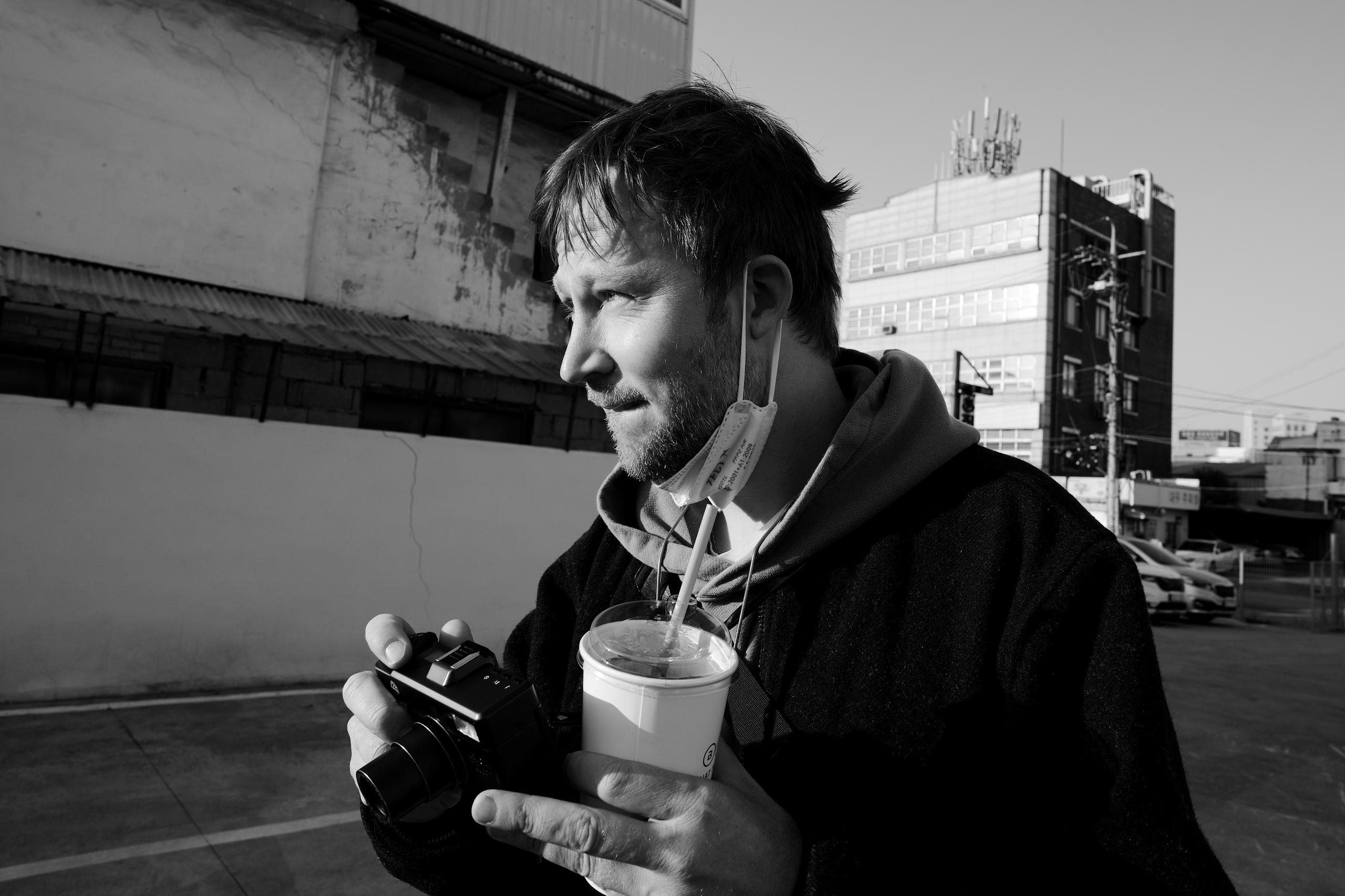
Cyril Schäublin’s film Unrueh (Unrest), about anarchist workers in the watch factories of the Jura region, last week won the Best Picture Prize at the Jeonju International Film Festival. Ahead of the announcement, the Swiss director talked to British critic Christopher Small about filmmaking and the Jeonju landscape.
In February, Swiss filmmaker Cyril Schäublin won the best director prize for his film Unrest in the “Encounters” jury category. His singular feature-length film paints a portrait of the rapid growth of anarchism among Swiss watchmakers in the hills of Saint-Imier, canton Jura, in the 19th century.
On the heels of this triumph in Berlin, Schäublin’s film headed to the Jeonju International Film Festival in South Korea – doubtless the first of many further major festivals on the horizon.
Thanks to its generous funding apparatus and its risk-taking emphasis on radical experimentation, the festival is a well-known and highly regarded incubator for international independent film. In no time Schäublin made his mark on Jeonju: on May 4, the film walked away with the Best Picture prize in the International Competition.
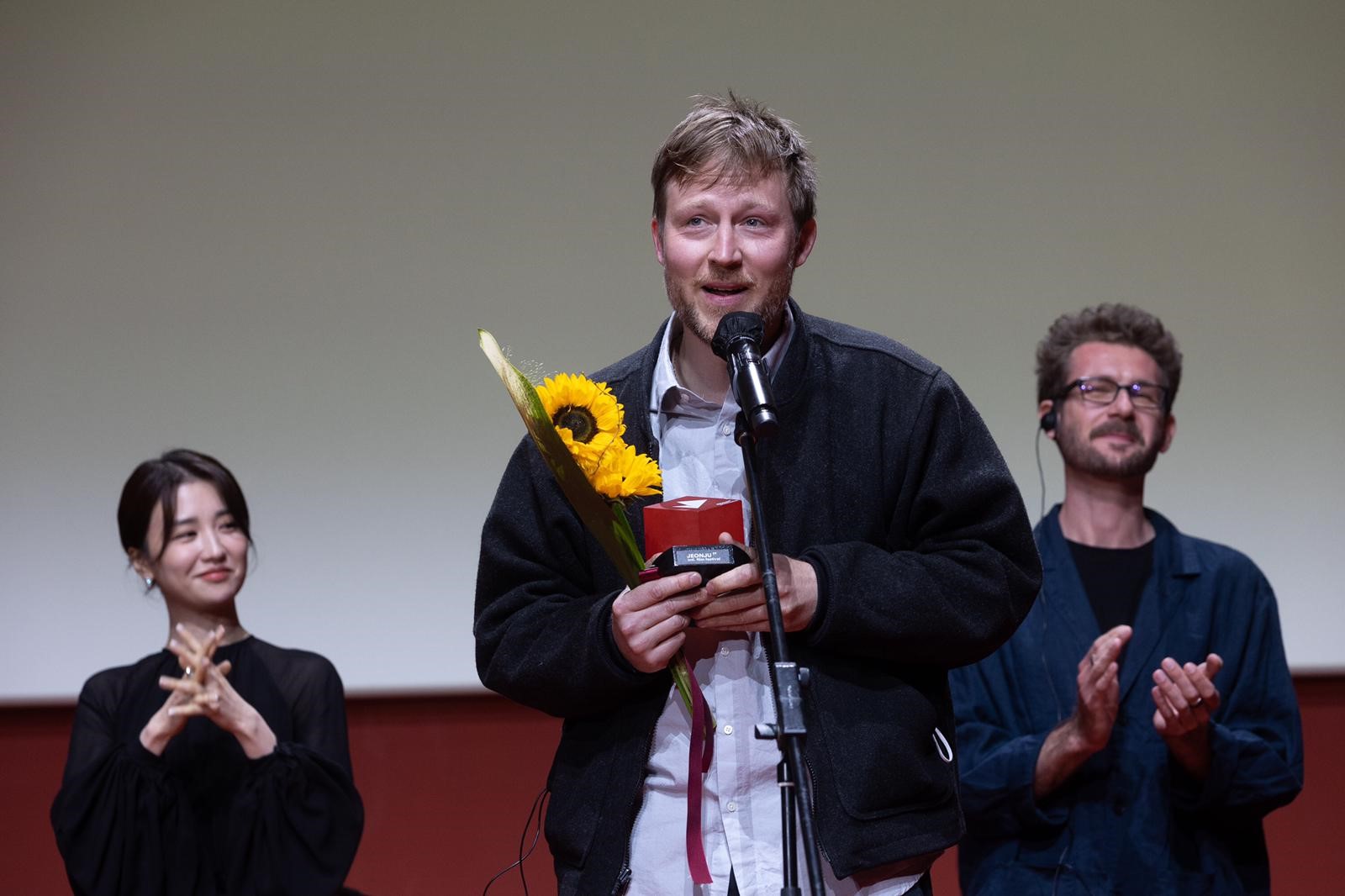
Walking the talk
I met Schäublin in the lobby of our hotel during his stay in Korea and we set off for a stroll along the Jeonjuchun, the river that threads through the centre of the city. Late in the day, the light that rakes through Jeonju, a low-lying urban sprawl with plenty of glass storefronts facing into each other, is astonishing.
As we walked and talked, Schäublin was eloquent in discussing his film but distracted, his attention ensnared by many of the lilypad-like configurations of pale sunlight arranging themselves in grids on the grey walls around us.
Schäublin’s droll, rigorous Unrest is, to borrow a famous Shakespearean phrase, as rich as it is strange. Europe in 1876 was marked by the rapid advance of capitalism and the spectre of libertarian communism in the collective consciousness. Few places on the continent experimented with radical democracy and industrialisation as seriously and comprehensively in that period as did Switzerland, which here is portrayed as a site of massive political upheaval but also, at least with Schäublin’s roster of placid characters, subdued emotion.
The ‘unrest’ of the title, a metaphor for so much in this beguiling work, refers to an indispensable component in watchmaking, also known as a balance wheel.
The protagonist (Clara Gostynski) spends her day untremblingly lowering it into each fresh mechanism with a tiny pair of tweezers. Without the unrest, the ordered system of clockwork in these watches would cease to operate; timekeeping itself would lose its meaning.
The parallel transformations shaping the world of the watchmakers are those of standardised time – gently resisted by the township itself, with its four time zones – and of anarchy – represented by the arrival of cartographer and anarchist Pyotr Kropotkin to the region. (The film draws inspiration from his memoirs.)
The anarchist perspective
Schäublin speaks fondly about Kropotkin. But above all he is a vector for other ideas. When you start digging around into this history of anarchism, watchmaking, and the region, “you run into him very quickly”, he tells me.
“In Kropotkin’s memoirs he talks a huge amount about Switzerland, about these watchmaking workshops, about the massive amount of his political and philosophical thinking that developed there.”
In Unrest, however, Kropotkin is not a heroic figure but a mild-mannered observer, patiently working on his maps and interacting bemusedly with the inhabitants of the town, including the local police, who frequently and mild-manneredly block his passage through various city streets for arcane reasons.
“For sure, the idea that we should speak so much about these famous anarchists – Bakunin, Kropotkin, Emma Goldman – is questionable from an anarchist perspective,” Schäublin says. “I knew I had to resist this urge to centre my movie around specific figures instead of on the collective movement, or the simple people trying to bring it into their reality.”
Mid-sentence, Schäublin paces forward to snap another photograph on his 35mm Leica – of a rectangle of dusty sunlight illuminating bric-a-brac in a disused lot between two buildings. Returning, he apologises and mutters awed words about a particular metal lantern nearby, before snapping back to his train of thought: “Yes, it’s the 150th anniversary of the birth of the movement in Saint-Imier this year, when our film is being seen for the first time. A weird and happy coincidence.”
When Switzerland bred revolution
Schäublin’s research was intensive, drawing from his own brother, an anthropologist, as well as from a number of top academic sources from around Switzerland.
“BakuninExternal link died in Bern. Russian students came to Zurich. Switzerland was one of the first places where one could study as a woman, for instance. They came and they had access to revolutionary literature there in the 1870s, which was forbidden in most European countries, especially monarchies like Germany and Italy.” He paced away again before adding: “In Switzerland, anarchists would print newspapers and smuggle them all across Europe. “Even”, he turned to look directly at me, smiling, “to England”.
Our conversation is fragmented throughout; ideas, back-and-forths intermingle among the myriad distractions of the world, many of which Schäublin was supernaturally sensitive to. This gentle chaos feels fitting for the maker of a film about how sustaining a little chaos can rebalance a life of work, about how hidden pathways only reveal themselves when somehow reenacted.
Besides, scenes made on simple dialogues have an unusual character in Unrest; Schäublin eschews typical set-ups, stitching his images together so that performers do not appear on the scene as they speak but only after they have ceased talking.
We are approaching the river now, leaving behind us the frantic streets of the city centre, strolling like two stately aristocratic characters who flatly discuss anarchist theory in the film’s opening scene.
When I note that I have never seen people talk – mutter, really – in this way in an historical film before, he seems happy. “Well, something that astonishes me with most historical movies is that people seem to talk in important, heavy ways – as if each word matters, a lot. I just tried to imagine that in the 19th century there was as much randomness in language as today.”
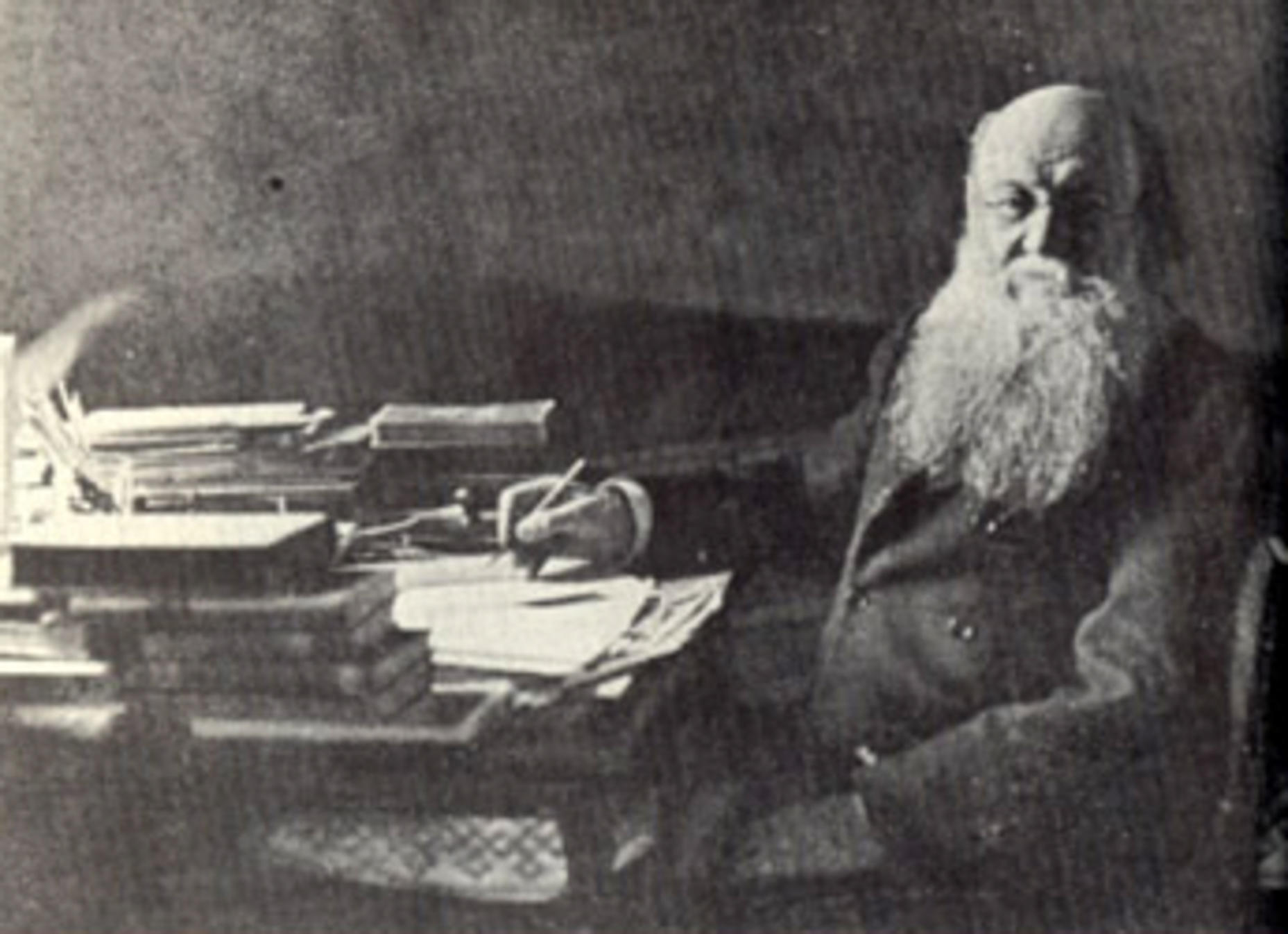
Pyotr Alexeyevich Kropotkin (1842-1921), was a Russian geographer, anarchist and prince. He was a descendent of the founder of the Rurik Dynasty that ruled Kievan Rus, but he stopped using his title at the age of twelve. He joined a revolutionary party in the 1870s, and was imprisoned, escaping in 1876. He then lived in Switzerland, France and England. His final years were spent in the Soviet Union following the February 1917 revolution.
History as sci-fi
He learned something essential from the famous Portuguese cinematographer Rui Poças: treat historical fiction films like science fiction. “He meant: with the same freedom. Making films in either genre is like making a complete construction. You will naturally feel compelled, when making a historical film, to do justice to something. But no, you have to assert that this is a free experiment too.”
We watch a crane swoop low over the river, bathe itself briefly near the bank, and then take off again. What about the non-professional cast, I ask, pieced together from friends and real watchmakers from the valley?
“For sure it’s intimidating to suddenly find yourself with 25 crew members and five people dressing you in costumes all around when you’ve never before been in front of the camera. But for some of these people, lifelong friends, I just know their faces.”
Through our conversation, Schäublin always talks about his performers in this way, with evident deep love and respect. “I know what touches me about them, after countless dinners together, countless evenings shared. Making the film is about searching for these details I see in our lives as friends.”
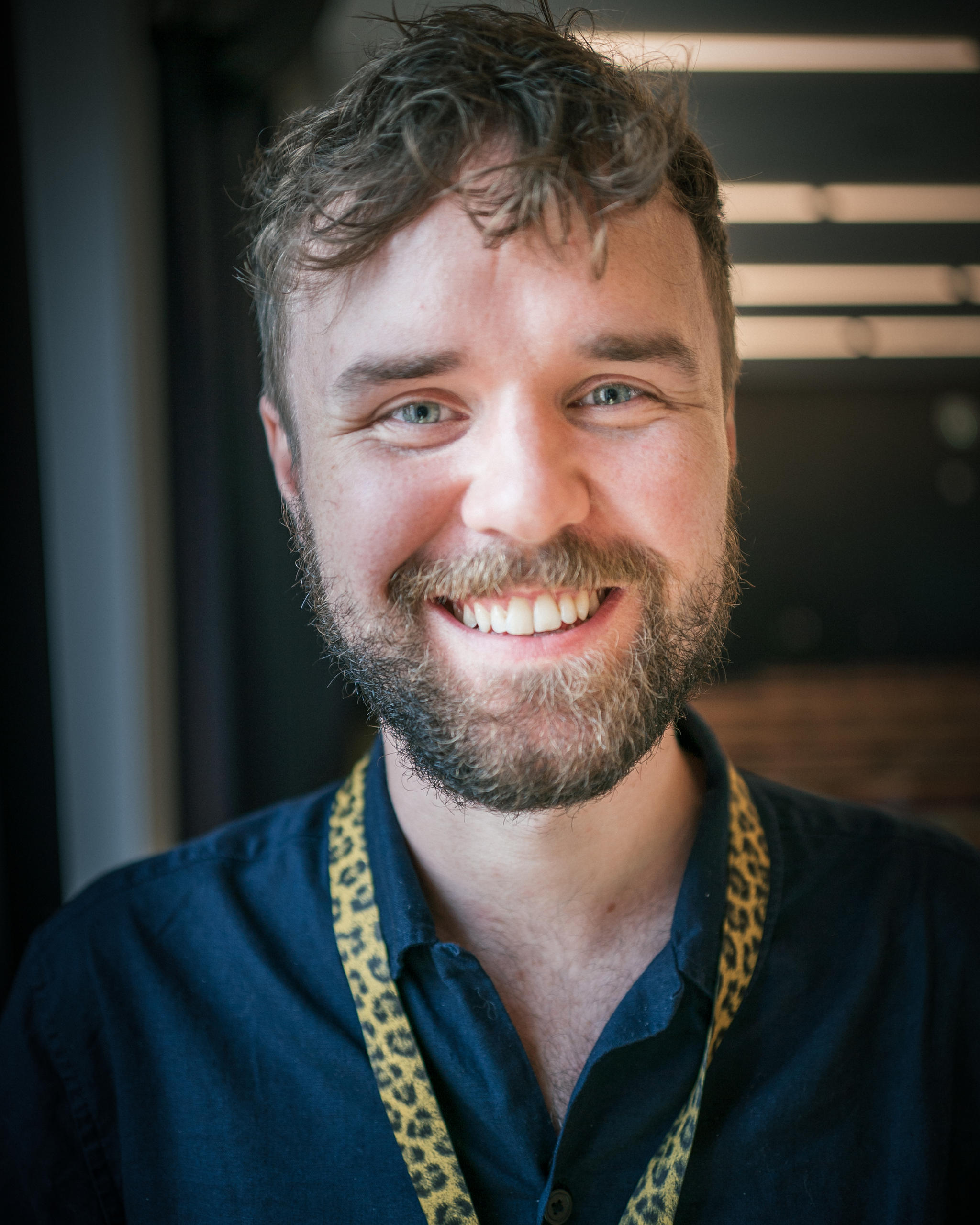
Christopher Small is a writer, curator and filmmaker. He was born in the United Kingdom and lives in Prague, Czech Republic. He runs the Critics Academy at the Locarno Film Festival.

In compliance with the JTI standards
More: SWI swissinfo.ch certified by the Journalism Trust Initiative










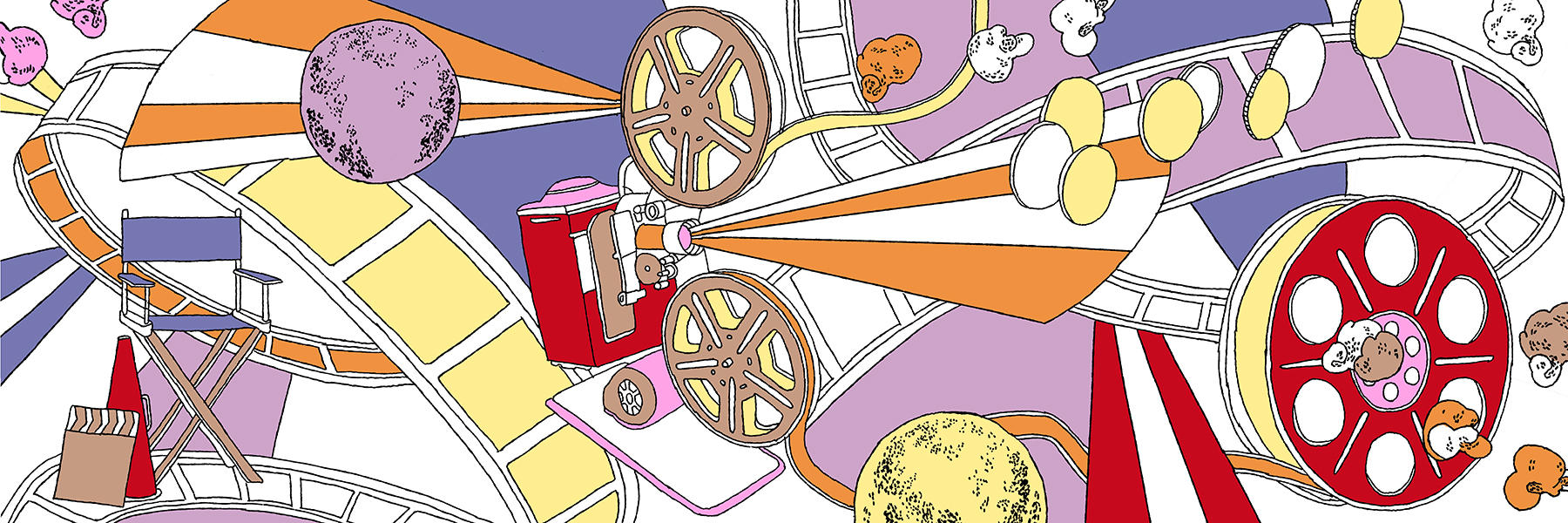

You can find an overview of ongoing debates with our journalists here . Please join us!
If you want to start a conversation about a topic raised in this article or want to report factual errors, email us at english@swissinfo.ch.